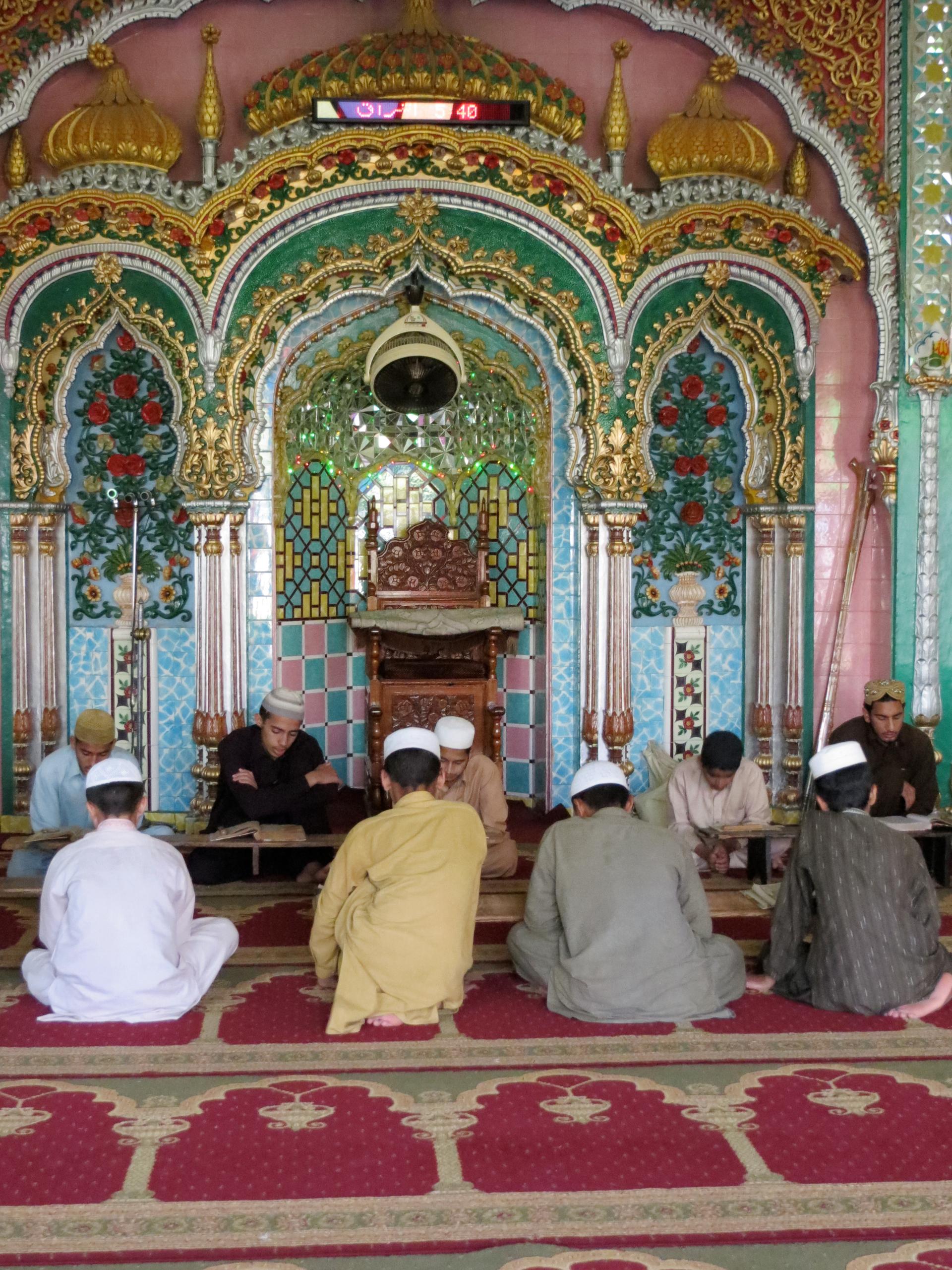The Madrassa Myth: in Pakistan, Public Schools may be the Problem
Pakistani students at a madrassa, or Islamic school, in the city of Haripur recite aloud from the Quran in hopes of memorizing the entire holy book. (Photo: Beenish Ahmed)
A group of young boys wearing tight, crocheted caps rock back and forth as they recite verses from the Quran. Their voices–some loud, some hushed–resound through the domed mosque in a cacophony of swirling melodies.
Recent reports have pointed to Pakistan's Islamic, religious schools like this one as training grounds for terrorists. But most students attend the schools-–called madrassa–for a purely spiritual purpose.
"I studied in a public school until 7th grade and then I left to come here," said Mohammad Kamran Rafeeq. "I liked learning about my faith and I had two friends who had studied here. They said the teachers were really good, so I came and enrolled."
At seventeen, he one of the oldest in this class. He moved from Kashmir four years ago to live and study at this madrassa near the city of Peshawar.
The madrassa provides Rafeeq and his fellow students with room and board. Nearly every waking hour of the day is geared toward becoming a hafiz–memorizing the Quran in its original Arabic. Qazi Wajid ud-Daym, who helps run the school, said the kids learn the meaning of the verses they read, but they avoid any particular stream of interpretation.
"We only teach the memorization of the Quran," he explained. "We decided to stop the other classes before they became an issue because different sects interpret the Quran differently. That caused problems so we basically dropped everything but just the words of the Quran."
But the reality in Pakistan is that most students do learn a variety of interpretations of Islam. And not necessarily in madrassas. Even the public school curriculum was infused with religious undertones by the military dictator Zia Ul-Haq in the 1970s.
Dr. A.H. Nayyar is a retired professor who's studied the effects of this dramatic shift. He said, "They had lessons on Islamic principles and Islamic practice and Islamic history in books on English, in books on social studies. And in some cases, also in books on mathematics."
More troubling, said Nayyar, is the very radical and militant view of Islam that was inked into the country's national public school curriculum, and into the hearts and minds of students.
"There were lessons in textbooks which actually told students, and still continue to do in the latest books, that jihad is enjoined upon all Muslims and getting ready for jihad, not just by fighting yourself, but also if you can't fight supporting it by providing it money and help and so on and so forth, is supposed to be duty of each and every Muslim," he said. "No wonder that jihad has now become so deep-rooted in Pakistani society."
Nayyar and others say it's ironic that people in the West equate madrassas with radical Islam since the vast majority of school-age kids in Pakistan go to public schools.
"Madrassa enrollments at most were about 1.5 percent. So think of it as, you know, kind of a fringe experience," said Jishnu Das, a senior economist at the World bank.
Das has done a lot to debunk what's called the "madrassa myth." It' the idea that Pakistani kids have gone off to madrassas, radicalized en masse, and sent off to commit acts of terrorism. While he said this does happen on a small scale, the reasons for going to a madrassa tend to be far more benign.
"It had nothing to do with poverty, it had nothing to do with availability," Das said about his research on education in Pakistan. "This was primarily, you know, one brother is going to public school, one sister is going to private school, one kid is going to the madrassa. Why? Because he wants to really learn the Quran and become a hafiz. What do you do about that? One kid wants to become a priest. Should we say you're not allowed to go to the seminary? And that's precisely what it seemed like."
Back at the madrassa, Rafeeq said he plans to go back to Kashmir to continue his secular schooling, though he'll keep up with his religious studies on the side.
When I ask if he hopes to take part in militant jihad, a smile briefly flickers across his face.
"I'd like to," Rafeeq said, "But I don't know if I'll have the heart for it in the end."
It's impossible to know where Rafeeq's interest in jihad comes from: his public education, madrassa instruction, or something else entirely. Regardless, his quick grin is evidence enough that another generation of Pakistanis could easily be lured into a violent future–perhaps through the very institutions meant to give them a better life.
